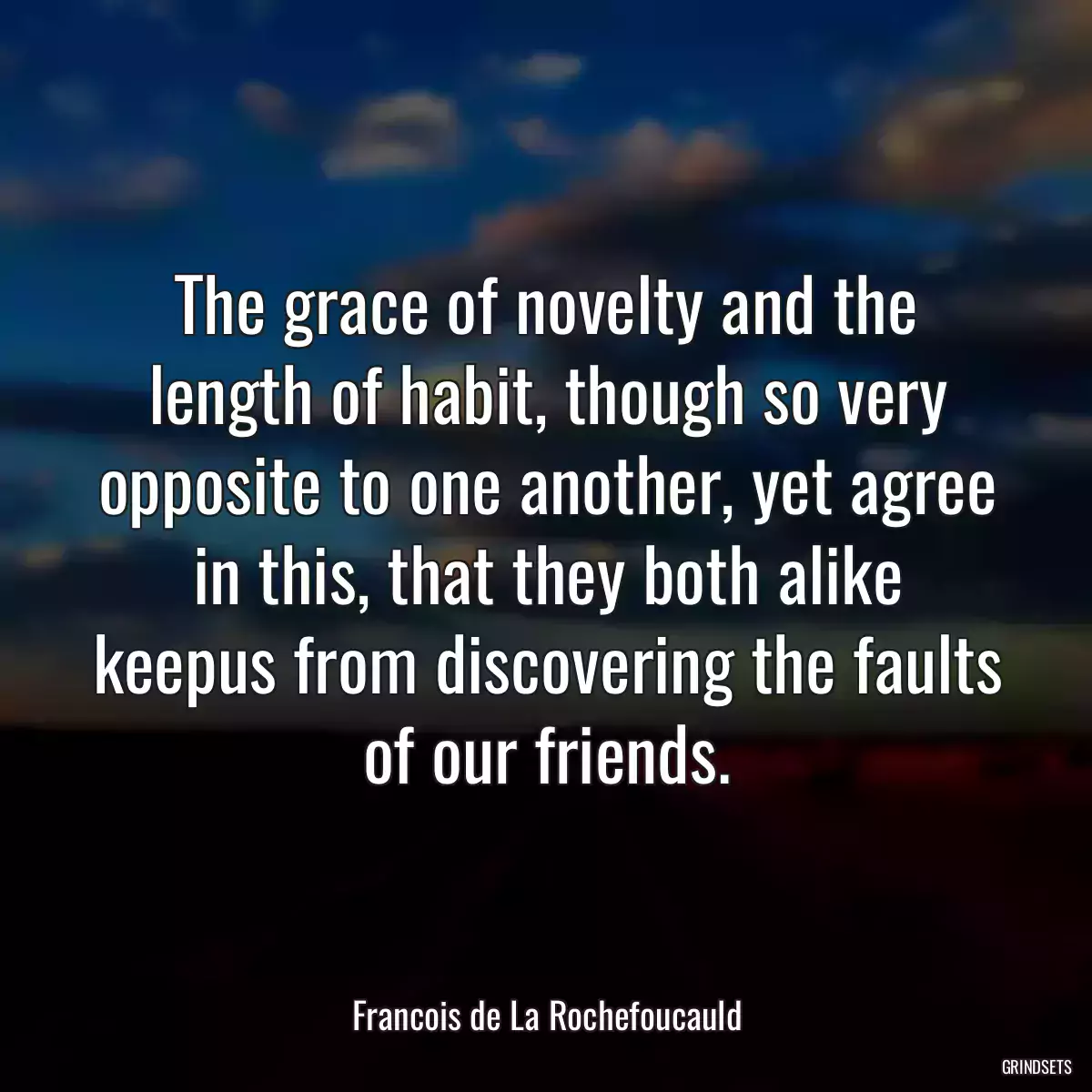
Quotes François de La Rochefoucauld - page 6
Find dozens of François de La Rochefoucauld with images to copy and share.

A man often imagines that he acts, when he is acted upon.
Men may boast of their great actions; but they are more often the effects of chance than of design.
To praise great actions is in some sense to share them.
You may also like
To praise great actions with sincerity may be said to be taking part in them.
Nothing is so contagious as example; never was there any considerable good or ill done that does not produce its like. We imitate good actions through emulation, and had ones through a malignity in our nature, which shame conceals, and example sets at liberty.
It is praiseworthy even to attempt a great action.
Those great and glorious actions that dazzle our eyes with their luster are represented by statesmen as the result of great wisdomand excellent design; whereas, in truth, they are commonly the effects of the humors and passions.
However glorious an action in itself, it ought not to pass for great if it be not the effect of wisdom and intention.

Our actions seem to have their lucky and unlucky stars, to which a great part of that blame and that commendation is due which is given to the actions themselves.
Sometimes we lose friends for whose loss our regret is greater than our grief, and others for whom our grief is greater than our regret.
What men have called friendship is only a social arrangement, a mutual adjustment of interests, an interchange of services given and received; it is, in sum, simply a business from which those involved propose to derive a steady profit for their own self-love.
The generality of friends puts us out of conceit with friendship; just as the generality of religious people puts us out of conceit with religion.
What men call friendship is no more than a partnership, a mutual care of interests, an exchange of favors - in a word, it is a sort of traffic, in which self-love ever proposes to be the gainer.
The reason we do not let our friends see the very bottom of our hearts is not so much distrust of them as distrust of ourselves.
The thing that makes our friendships so short and changeable is that the qualities and dispositions of the soul are very hard to know, and those of the understanding and wit very easy.
True friendship destroys envy, and true love destroys coquetterie.
You may also like

When we enlarge upon the affection our friends have for us, this is very often not so much out of a sense of gratitude as from a desire to persuade people of our own great worth, that can deserve so much kindness.